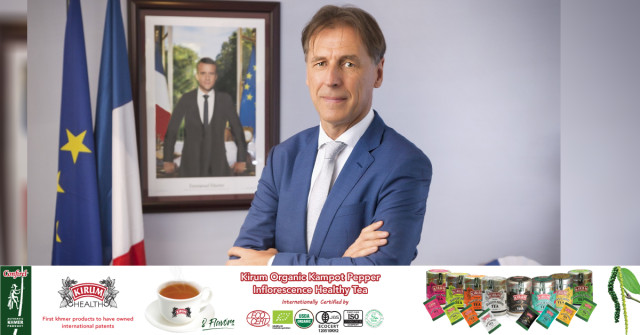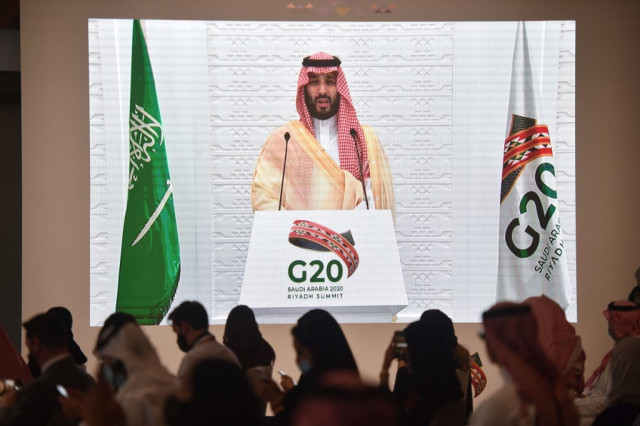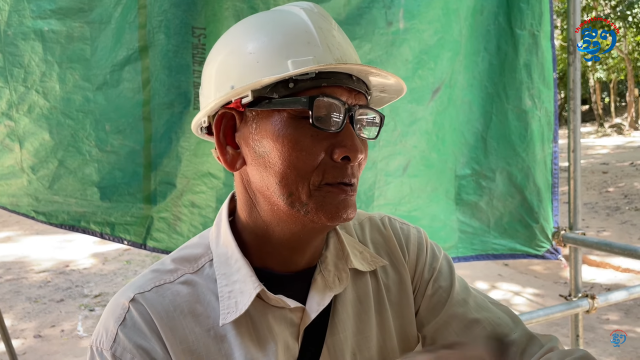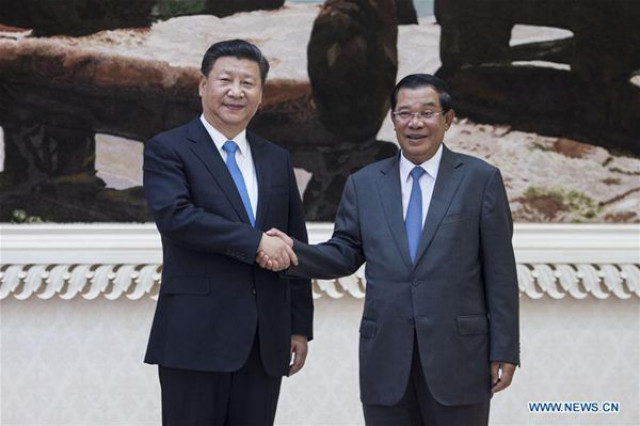PM’s France Trip Cements Ties: Envoy

- By Ung Chamroeun
- January 12, 2024 9:50 AM
PHNOM PENH -- Prime Minister Hun Manet will pay a two-day official visit to France from Jan. 18. It will be his first visit to Europe since taking office in Aug. 2023. French Ambassador to Cambodia Jacques Pellet tells Thmey Thmey Digital Media executive director Ung Chamroeun about the importance of the visit which is part of a drive to strengthen bilateral and multilateral cooperation.
Ung Chamroeun: The Prime Minister’s visit will be the third time since December 2022 that Cambodia’s highest authorities have been invited by the President of the French Republic. Could you tell us more about the state of the relationship between Cambodia and France in this context?
Jacques Pellet: Prime Minister Hun Manet’s visit will be indeed the third high-level visit in only 13 months, following meetings between President Emmanuel Macron and former Prime Minister Hun Sen in December 2022 and King Sihamoni in November 2023.
It will also be the Prime Minister’s first bilateral visit outside Asia. That sends a strong signal on the dynamism of our relationship. As did the numerous cross-visits of ministers and senior officials in 2023, and the growing interest of French stakeholders for Cambodia, and in particular of the major French companies that are willing to invest further in the country, including in the infrastructure sector.
This dynamic lies on solid foundations. Our shared history and long-standing cooperation on many fields include heritage protection, defense, health, higher education, sustainable development, as well as culture. France has co-chaired the ICC-Angkor with Japan since 1993.
In terms of governance, a close-knit team of public agencies is united under the “Team France” label to implement our cooperation and support the men and women who will build Cambodia's future.
The French business community, French NGOs and the French-Cambodian community also play a major role in the special links between our countries.
On the basis of this long-standing and trustful relationship, France does not hesitate to express, in the spirit of the principles of the Paris Peace Agreements and the Cambodian Constitution, its concerns regarding the respect of human rights and political pluralism, as well as its wishes to see substantial improvements in these areas.
Finally Cambodia is at the heart of a strategic region for France, which has been strengthening its presence in the Indo-Pacific area and with ASEAN for the past few years.
Ung Chamroeun: In his letter of invitation, Mr Macron expressed his wish to work with Cambodia to address global challenges but also to strengthen the rules-based international order. Can you elaborate on this?
Jacques Pellet: Global challenges can only be addressed by collective action. Climate change, environmental degradation, loss of biodiversity, global health, fighting against poverty, but also international security … all require coordinated efforts and international cooperation.
That is for instance the goal of the Paris Pact for the People and the Planet, launched in June 2023 by the President of the French Republic: eradicating poverty while preserving the planet by a better mobilization of all sources of financing.
Active participation in multilateral coalitions and the United Nations entities offers platforms for Cambodia to share its experience, voice its concerns, take part in the solutions-finding agendas, and establish mutually beneficial partnerships.
The country can contribute to sustainable development, protect its natural resources, contribute to international and regional stability and, in the end, improve the well-being of its citizens.
Cambodia has a voice that is heard on the international level. It was clear when it denounced the Russian war of aggression in Ukraine and reaffirmed its attachment to the UN principles. But there is much more.
Whether it is energy transition, the “One Health” approach, but also the fight against impunity with the ECCC or for the universal abolition of death penalty, which has been abolished as early as 1989 in the country: Cambodia has also a lot of expertise and experience to share with the international community.
Ung Chamroeun: Last year, relations were marked not only by exchanges of high-level visits, but also by a significant increase in France’s commitment to sustainable development in the Kingdom. What about 2024?
Jacques Pellet: France has stepped up its cooperation in this area. The AFD's (French Agency for Development) activity in Cambodia aims to support the country in its low-carbon transition, to make territories more resilient to climate change, to improve its regional integration and competitiveness, and to promote the blue economy and sustainable water management.
It is in line with the Sustainable Development Goals (SDGs) and integrates cross-cutting issues such as innovation, gender, climate change, energy efficiency and the "One Health" approach.
Last year, the AFD committed to double its support for the Kingdom's transition by pledging to finance up to 400 million euros of projects in 2023-2024, with priority to water and sanitation, agriculture, energy and vocational training sectors. For 2023, we have already reached an historic level of commitment from the AFD with EUR 215 million with projects, notably in clean water infrastructure, vocational training and energy.
Our support to agroecology was considerably scaled up with new projects from the AFD and the IRD and the CIRAD research and international cooperation organisations, always in partnership with Cambodian stakeholders.
Finally, France’s commitment to sustainable development also includes fostering private-public cooperation in energy transition.
Our commitment toward culture and heritage, which is another long-standing area of cooperation between our two countries, will be also in the spotlight in 2024.
Since 1993, France has provided more than $25 million for the preservation of Cambodia’s cultural heritage, including through grants to restore Baphuon and Western Mebon temples in the Angkor site.
France was asked by Cambodia to support the restoration and extension work of the National Museum in Phnom Penh. A letter of intent on French support for feasibility studies for the renovation of the museum will be signed during the Prime Minister's visit to France.
Ung Chamroeun: The final question relates to the Francophonie, of which King-Father Norodom Sihanouk was one of the founders. At present, 88 states and governments are members of the Organisation Internationale de la Francophonie. How do you see the role of the Francophonie in Cambodia?
Jacques Pellet: The Organisation Internationale de la Francophonie’s role is of course to promote the French language and cultural diversity but also to foster political, cultural, and economic cooperation among its member states.
France will organize the next Francophonie Summit on October 4, 2024, at the “Cité internationale de la langue française” in the city of Villers-Cotterêts, a venue dedicated to the French language and “francophone” cultures.
From our point of view, the Francophonie should serve the people by offering a vector of intellectual debate, creation and employment. The French-speaking world is a source of talent and opportunities of which we should be proud.
So, France and the OIF have agreed that creativity, innovation and entrepreneurship in the diversity of the French-speaking world will be at the heart of this summit. I am convinced that this theme resonates with Cambodia’s goals for economic development.
I am delighted that Cambodia has expressed the willingness to be a candidate for hosting the next summit in 2026. It would send a strong signal about the importance of Francophonie in the Asia-Pacific region, in which I am convinced that Cambodia is one of the most dynamic countries regarding Francophonie.
The French language plays an important role for trade and diplomacy. Indeed, I would say that learning French still raises a lot of interest in Cambodia and promoting the French language is one of our priorities.
More than 40,000 people are learning French in Cambodia: at the French Institute (Institut Français du Cambodge) in Phnom Penh and Battambang, at Alliance Française in Siem Reap and in the French schools or Cambodian high schools through the French-Khmer bilingual programme.
Lycée René Descartes in Phnom Penh attracts more and more pupils (1,250 today). In higher education, several universities such as Institut de Technologie du Cambodge (ITC), Royal University of Law and Economics (RULE), University for Health Sciences (UHS) or Royal University of Fine Arts (RUFA) have bilingual diplomas, and the Embassy funds and co-funds around 80 scholarships per year for Master and PhD students to keep up their studies in France, most of them being French-speaking students. There are more than 800 Cambodian students in France to date.
Moreover, in partnership with the Ministry of Education, Youth and Sports, the Embassy is leading a project to support and strengthen the teaching of French in Cambodia.
In 2023, we supported the redesign of the initial training of French teachers and capacity-building trainings for current French teachers, especially those working in the bilingual (Khmer-French) classes across Cambodia.
In 2024, we will intensify our efforts to promote the French language as an asset for studies and employment. All these actions will pave the way for contributing to fostering the language looking forward to 2026.















